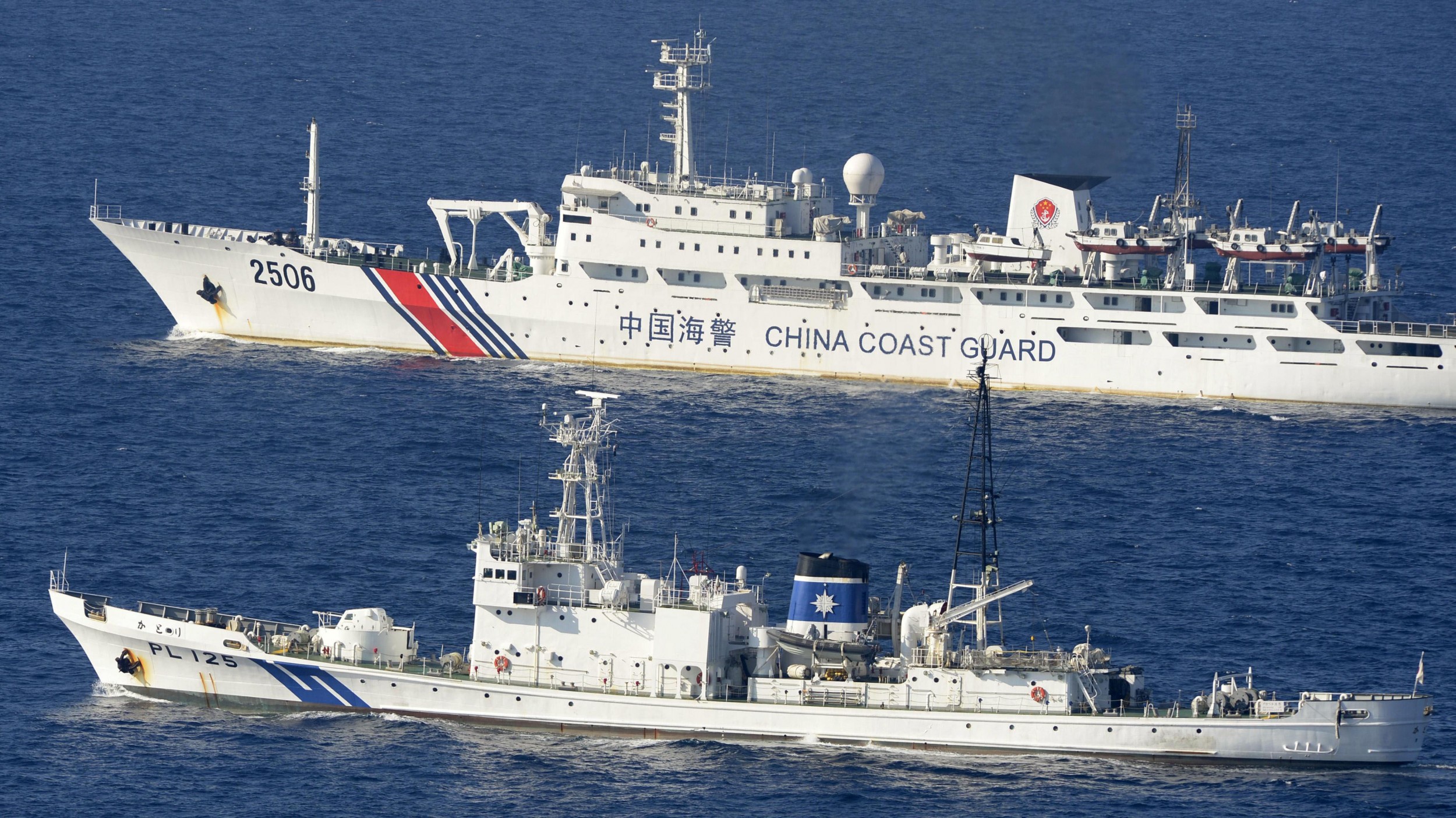(Photo Credit: Kyodo News via AP)
(BGF) – On April 23, 2014 The New York Times reported on a recent deal, the Code for Unplanned Encounters at Sea, endorsed by the United States, Japan, and China. The Code for Unplanned Encounters at Sea is a non-binding protocol that is designed to help develop “rules of the road” for encounters between maritime vessels. The hope is that developing these rules, embodied in the code, will help reduce potential incidents at sea that could result in an escalation of military or diplomatic tensions. This is particularly important given recent encounters between U.S. and Chinese vessels, and Chinese and Japanese vessels in the dispute over the Senkaku/Diaoyu Islands. Click here to read the full article or visit The New York Times website.
Pacific Rim Deal Could Reduce Chance of Unintended Conflict in Contested Seas
By Austin Ramzy and Chris Buckley
TAIPEI, Taiwan — A naval code of conduct approved by more than 20 nations around the Pacific, including China, Japan and the United States, could reduce the risk of accidental encounters’ spiraling into conflict, experts said. But Beijing’s firm rejection of President Obama’s comments on Wednesday about islands claimed by both China and Japan underscored the maritime tensions that continue to trouble Asia.
The Code for Unplanned Encounters at Sea was endorsed Tuesday by naval officials from the United States, China, Japan and other states at a symposium in the northeastern Chinese port city of Qingdao, China’s state-run Xinhua news agency reported.
The agreement comes at a time of growing concern about territorial disputes between China and some of its neighbors. China claims islands controlled by Japan in the East China Sea known as the Senkaku in Japan and the Diaoyu in China. Several countries, including China, Vietnam and the Philippines, have overlapping maritime claims.
Mr. Obama, who arrived in Japan on Wednesday to begin a trip that will also include South Korea, Malaysia and the Philippines, told a Japanese newspaper that the disputed islands fell under the United States-Japanese mutual defense treaty. “And we oppose any unilateral attempts to undermine Japan’s administration of these islands,” he said in a written response to the newspaper, The Yomiuri Shimbun.
A Chinese Ministry of Foreign Affairs spokesman, Qin Gang, said Wednesday that China was “firmly opposed to treating the U.S.-Japan security treaty as applying to the Diaoyu Islands.”
“The United States should respect the facts, in a responsible manner abide by its commitment not to choose sides over a territorial sovereignty issue, be cautious on words and deeds, and earnestly play a constructive role for peace and stability in the region,” Mr. Qin said during a news conference.
Encounters between military vessels in the region have prompted concerns about the risk of escalation.
Last year, a Chinese Navy vessel cut within about 100 yards of the Cowpens, an American cruiser that had been monitoring China’s aircraft carrier, the Liaoning, in the South China Sea.
Chinese and Japanese vessels in the East China Sea have also had several potentially dangerous encounters in recent years. In 2013, Japan saidChinese warships used radar that helps target weapons on a Japanese military vessel and a helicopter near the disputed islands. In an interview on Tuesday, the day the rules were approved, Adm. Wu Shengli, the commander in chief of the Chinese Navy, said the tensions with Japan remained serious and the risk of incidents at sea persisted.
“Nothing can be excluded,” Admiral Wu said in the interview with Phoenix Television, a satellite service based in Hong Kong. “That’s what we often call accidental discharge when cleaning a gun. The gun is an objective fact, but what we need to study is how to avoid accidental discharge when cleaning a gun.”
Military analysts say the lack of formal “rules of the road” for encounters between vessels of major navies in the Pacific increases the risk that an incident at sea could escalate sharply, possibly causing loss of life and inciting diplomatic crises. A code on interactions between warships could help reduce unintended conflict. “Over all, I think it’s a very positive development, but it remains to be seen how effectively it will be implemented,” Ian Storey, a senior fellow at the Institute of Southeast Asian Studies in Singapore, said in an interview.
Click here to continue reading.
